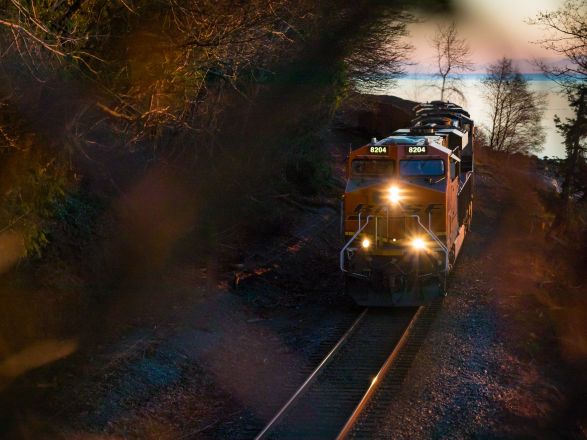The ongoing shutdown of CN’s railway in eastern Canada is now being felt throughout the country’s broader supply chain. Protestors continue to halt movement in the fight against a planned gas pipeline that would cross into Wet’suwet’en land in northern British Columbia.
Protestors in support of the First Nations’ objections have been blocking portions of the rail network over the past week. This has caused CN Rail to shut down eastern operations and VIA Rail to cancel a large portion of their passenger rail service. Blockades have also disrupted service for CN’s western operations.
It’s not just rail transport that is feeling the effects. Truck and ship freight is also feeling the impacts of the blockades.
“Many trucking movements begin or end at the rail head. The supply chain is not only integrated from a supplier perspective, it’s integrated modally as well,” the Canadian Trucking Alliance (CTA) said in a formal statement released today.
“When the railways suffer disruption in service, it impacts everyone in the economy including the trucking industry. When bridges and roads are blocked, trade stops and other modes and business sectors which depend on trucking services are negatively impacted. The Canadian economy overall depends on a reliable and fully-functioning supply chain.”
The blockades are beginning to cause a domino effect. Shippers are shifting away from railways to trucks, which is tightening capacity. It's not just trucks that are strained either. The Port of Vancouver has more than 40 vessels offshore waiting to dock and unload goods.
“Due to the recent disruptions in rail operations and protest activity, the demand for anchorages is currently exceeding the availability, causing a backlog of ships waiting to get into port. During times of congestion, the port authority manages anchorages in a way to ensure continued fluidity for all ship types and ensure anchorages continue to be available for essential services,” said port spokesperson Danielle Jiang.
Government officials continue to seek peaceful solutions with protesters. There are currently court orders against protesters in Ontario, but so far these have not been enforced. This additional strain to the supply chain is coming at a poor time, with the transportation and logistics industry already dealing with coronavirus shutdowns and preparing for the arrival of produce season.
Hopefully, the government and First Nations’ communities can come to a peaceful resolution allowing the Canadian supply chain to return to normal.



